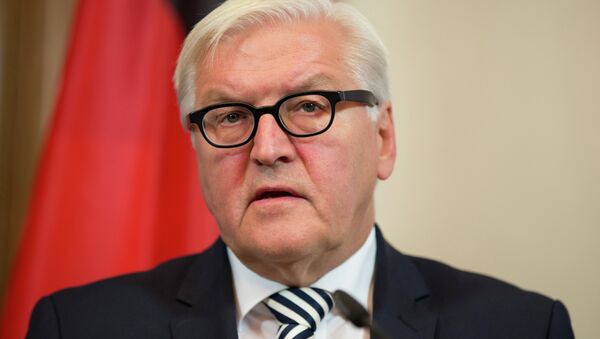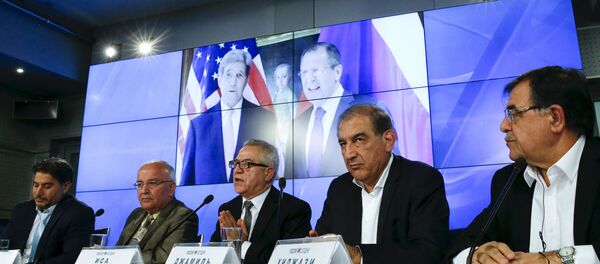BERLIN (Sputnik) — Speaking at the Parliament’s Foreign Affairs Committee, Frank-Walter Steinmeier said that "all issues about what is next for Assad have not been clarified in the general paperwork [of the Vienna meeting]."
Steinmeier added that international mediators were divided into two camps of those arguing that Assad had no future in Syria and those who wanted him to stay, meaning that the outlook for a joint stance remained unfavourable.
The last round of Syria talks in Vienna took place on Saturday and involved world and regional powers, including Russia, France, Germany, Saudi Arabia, Iran, Turkey and the United Nations.
The last round of Vienna talks on the Syrian conflict did not end in an agreement on whether the Islamic State (ISIL) and Nusra Front militant groups should be the key targets of campaigns in the Middle East, Steinmeier also said.
Russia has been calling for a unified blacklist of terrorist organizations that will be put together under Jordanian supervision.
"This issue was debated," the top German diplomat said. "This is not an argument between Russia and the West, it is an argument between Arab states in the region."
According to Steinmeier, some Gulf Arab states took a firm stand against all groups fighting in the Middle East that they deem extremist.
Last Friday, Moscow and Washington exchanged draft lists of groups operating in Syria considered to be terrorist. The United States argues that many groups fighting the regular Syrian army are moderate opposition.




